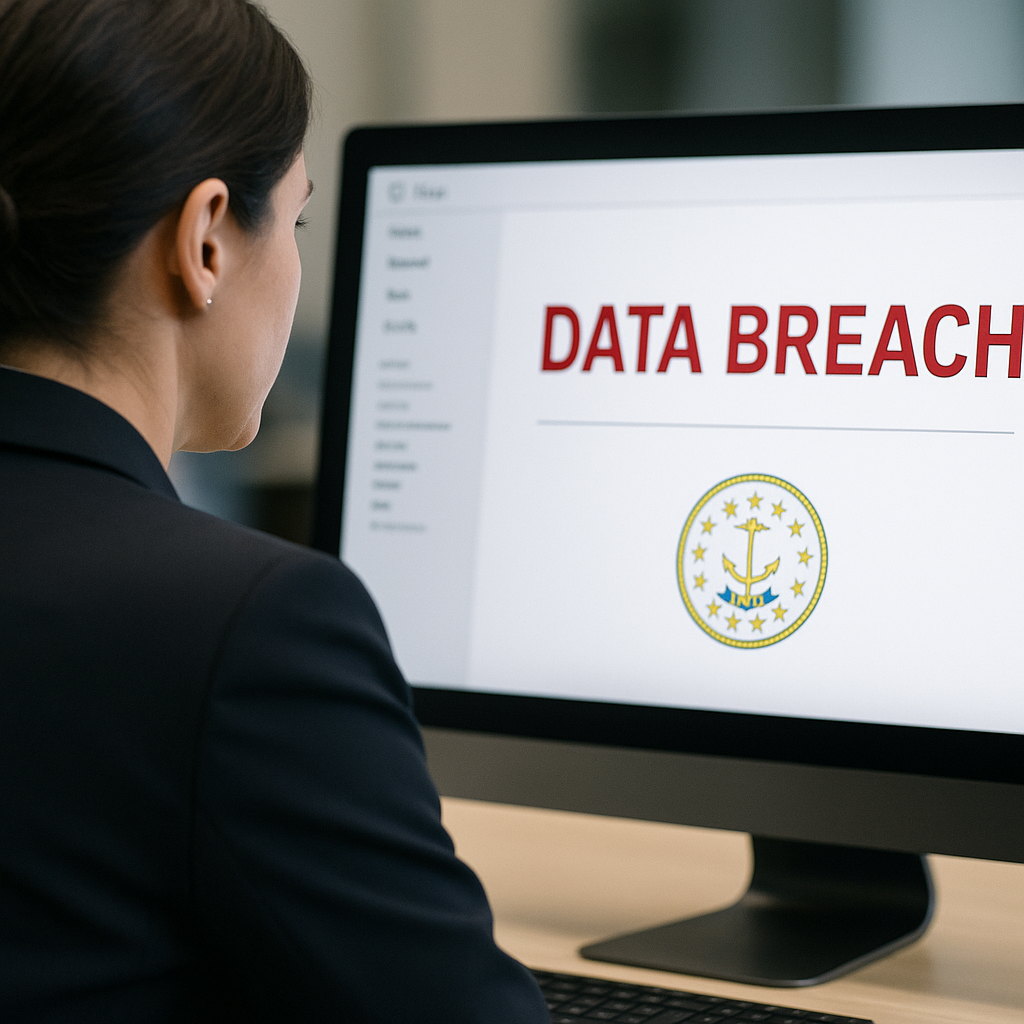What’s Changing and Who It Applies To

Rhode Island has passed a major update to its data breach notification law. Any organization that handles personal data of Rhode Island residents now has clear deadlines and a strict process to follow when a breach occurs. That includes private businesses, nonprofits, schools, and every public agency from towns to state departments.
If a breach involves unencrypted personal data like Social Security numbers, driver license numbers, or account credentials, it must be reported. The new law gives public agencies 30 days to notify affected individuals. Private businesses have up to 45 days, but that’s only if they’re actively investigating and working to contain the incident.
If more than 500 residents are affected, organizations also need to notify the Attorney General, the Division of Enterprise Technology, and the major credit reporting agencies. State and municipal agencies must alert the State Police within 24 hours of any suspected cybersecurity incident, no exceptions.
These changes aim to close the gap between detection and disclosure. For years, victims in Rhode Island had to wait too long to find out they were exposed. This law forces organizations to put the public first.
Why This Happened and Who Got Burned
In late 2024, over 650000 Rhode Islanders had their personal data compromised in a massive breach tied to the state’s RIBridges system. That one incident changed everything. People waited weeks for answers, and pressure from media, lawmakers, and the public forced the state to act.
Governor McKee responded by hiring Deloitte to set up a hotline, provide free credit monitoring, and manage the fallout. The state paid out over five million dollars just to stabilize the situation.
It was not the first time. Over the past five years, several state agencies and contractors reported breaches involving Social Security numbers, benefit records, and protected medical information. Each case showed a common pattern: too little transparency, no clear policy, and no accountability.
That ends now. With this new law, Rhode Island is putting deadlines in place that are meant to be followed, not ignored. Businesses that drag their feet or bury the truth will face fines and legal action.

What You Need To Do Now
If you store customer data, even basic contact records, you need to know this law. First, make sure that any personal data you store is encrypted. If it isn’t, you are exposed. Second, write a formal breach response plan and be ready to follow it within 24 hours of any incident.
At Triton Technologies, we help clients avoid these situations before they start. We use Sophos firewalls to keep intrusions out and Office 365 security configurations that enforce safe access to email, files, and apps. Cisco Duo provides identity checks to make sure logins are real, and endpoint protection covers every device.
We go further with internal and external penetration testing, ongoing threat detection through SIEM systems, and full user training through Proofpoint to catch phishing attempts before they land.
All of this is reportable. If a breach ever happens, you’re able to show what was in place, how it was contained, and what steps were taken to notify the right parties.
The Bottom Line for Rhode Island Businesses
Compliance is no longer a checklist. It is a legal requirement that comes with specific deadlines, language, and reporting steps. You don’t get extra time because your systems were slow. You don’t get forgiveness because your vendor made a mistake.
The new Rhode Island law puts consumers first. If their data is exposed, they have the right to know fast. They also have a right to protection, and that burden falls on the organization that lost control of the data.
Whether you’re a school district, a nonprofit, or a small business, these rules apply to you. Start with better security and make sure your reporting process is ready to go. If you don’t have that yet, now is the time to build it before the fines start coming.



